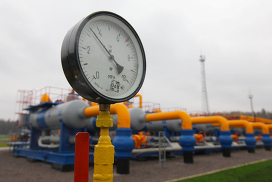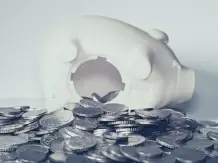MOSCOW, 14 Oct — PRIME, Oleg Krivoshapov. The energy policy of the united Europe, which is the main market for hydrocarbons from Russia, is becoming less and less adequate. Prime drew attention to a number of important events and announcements that could have a dramatic impact on global energy markets in the near future.
If it didn’t work out with Russia: the United States found a new “victim” in the oil market
STATEMENTS AND FORECASTS
Russian President Vladimir Putin’s speech at the Russian Energy Week (REN) on October 12 contained criticism of Western countries and their allies who are trying to put pressure on Moscow through various restrictions on the hydrocarbon markets. This position is not surprising: in 2021, gas supplies from Russia, according to the International Energy Agency (IEA), accounted for 45% of all imports to the European Union or 40% of total consumption – 155 billion cubic meters. Deliveries of Russian oil accounted for 27% of the total EU imports, coal – 46%.
It is all the more curious that on the same day, an interview with the chairman of the board of directors and chief executive officer of Chevron, Mike Wirth, appeared on the Internet portal of the British Financial Times (FT). In it, the top manager of the American oil and gas giant actually sided with Vladimir Putin as a harsh critic of Western energy policy.
According to the head of the American concern, Western governments “doubled down” the climate agenda, which exacerbated the global crisis in the oil and natural gas markets. And it will make energy markets “more volatile, more unpredictable and more chaotic,” Wirth said. He noted that despite active investment in renewable energy sources (RES) over the past 20 years, about 80% of global demand is still provided by fossil fuels. “The reality is that this is what rules the world today,” Wirth voiced his conclusion. Moreover, according to the forecast of the head of Chevron, “it will rule the world tomorrow, and in 5 years, and in 10, and in 20.”
At the same time, in the world as a whole (including Europe), there is a severe lack of investment in the oil and gas industry. Thus, according to Deputy Prime Minister Alexander Novak, which he announced during his speech at REW on October 13, investments in the oil industry alone have declined in recent years from $700 billion a year to $300 billion a year due to the promotion of the “green” agenda and weakening energy demand due to the Covid-19 pandemic.
The forecast of the demand for traditional and the reduction in energy financing means that Europe’s refusal of Russian energy resources poses a significant threat to its energy security. Declaring for many years a firm intention to abandon fossil fuels in favor of renewable energy, the European community this year only exacerbated its situation, taking a course this year to accelerate the refusal to import oil, coal and gas from Russia for political reasons.
TURN TO THE EAST AND MORE
During his speech on October 12 at REW, the Russian president once again firmly assured that domestic hydrocarbons would not be exported to countries that would try to purchase them at artificially low prices. And it does not seem that the position of the head of state causes at least a hint of misunderstanding in the oil and gas industry or in Russian society.

They will tear each other apart: the Europeans started a fight for gas
And this can only mean one thing: a change in the main direction of export hydrocarbon flows from Russia from West to East.
So, the head of “Gazprom” Alexei Miller, during his speech on October 12 at the plenary session of the REW, said that “Gazprom” is starting to build a jumper-gas pipeline that will connect the eastern and western parts of Russia. As a result, it will be possible to increase the volume of gas consumption by industrial enterprises in the east of the country and accelerate the pace of gasification in these regions. It is easy to understand that in the end it will become easier, among other things, to establish large-scale pipeline exports of “blue fuel” in the east, primarily to China as part of the promising Power of Siberia-2 project (that is, another decisive step will be taken in direction of Russia’s withdrawal from the European gas market).
Russia will soon begin construction of this gas pipeline with a capacity of 50 billion cubic meters per year, Vladimir Putin confirmed on October 12.
An even more powerful signal, which looks like another challenge to the ambitions of the “collective West” led by the United States in the hydrocarbon markets, was the Russian leader’s proposal on October 13 to Turkish President Recep Tayyip Erdogan to create a gas “hub” in his country, which will inevitably become an alternative to the one operating in the Netherlands Title Transfer Facility (TTF). Its appearance would make it possible, among other things, to create a transparent and reliable alternative to the mechanisms of artificial containment of natural gas prices, which Washington and Brussels are actively lobbying for. Regardless of whether and when this plan is realized, Putin’s proposal is a clear indication of Russia’s refusal to agree to the rules of the game in the gas market that the West imposes on it. Also obvious is Moscow’s policy of redirecting the main energy flows from West to East.
If we take into account the forecast of the head of Chevron about the impossibility of abandoning fossil hydrocarbons in the next 20 years, this means the need to look for sources of hydrocarbons that are alternative to Russian ones. But Europe will simply have nowhere to find them in conditions of a severe shortage in the hydrocarbon markets and a huge lack of investment in the oil and gas industry. Either the European elite will eventually reconsider its energy policy, or the emerging economic problems of the EU and the UK will grow to proportions that can result in economic collapse.
















